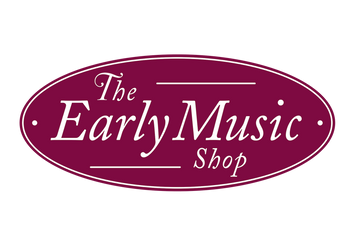What's your favourite thing about the London International Festival of Early Music?
Having the opportunity to immerse ourselves in performances by some of the top performers in the Early Music world is always amazing. It's a highlight of the year to browse new music and of course, new recorders! We love the opportunity to catch up with friends who travel specifically for the Festival and with the instrument makers, who we've built special relationships with.
You've now got a huge collection of recorders. Can you tell our readers about them and are there any more on your shopping list?!
We have several tenors and basses by Kung, as well as a great bass and contrabass recorder. Some readers might remember we fundraised to buy the contrabass, by livestreaming our 24-hour long performance! We are so grateful to all those who donated and for the support of the Early Music Shop and SRP Walter Bergmann Fund. We feel very lucky to own a contrabass and it makes regular appearances in all our performances. Including the recorder's versatility and contrast in our programmes is something that's very important to us. We also have recorders by Tim Cranmore, Bodil Diesen, Joachim Rohmer, Luca de Paolis, Von Heune, Mollenhauer & Yamaha. Our beautiful renaissance consort is made by Tom Prescott and we hope to expand that (perhaps without another 24-hour long concert!).
The Covid-19 crisis has added complications for Palisander, as we have over 40 recorders that we share in concerts and sometimes even within pieces! We're still navigating how this is going to work in the future, but we're likely to need to make some investments in order to continue performing in the way we've worked hard to develop.
You have such a varied repertoire as a group. What has been the most challenging piece to learn?
We really enjoy including movement and choreography in our performances and we mainly play from memory. 'Articulator V', by Agnes Dorwarth, is a piece which explores the variety of articulation sounds at a recorder player's disposal. Some of these are spoken, whispered or even shouted during the piece, alongside a host of extended techniques on the recorder - not quite the same as memorising a catchy melody... If this wasn't enough of a challenge, we choreographed some movement to the piece as well! Now, it feels like second nature and the playing and movement have become one, but there's still the odd giggle!
You can watch the piece on Palisander's Facebook page here.
Miriam, you arrange lots of music for Palisander so well! Do you have any arranging tips for our readers?
Thank you! I've been on a big learning curve arranging music for the group over the last few years, and I would say experimentation has been key. Trying a many different styles and approaches to pieces as I can has helped us to discover a wide range of presentation styles that work well (and not so well!) for us as an ensemble. I start by getting a feel for the piece and looking for our angle: is there a story to tell? Are we trying to emulate another instrument, like an organ? From there, I start experimenting on my instruments, and always save all the drafts incase I want to revisit initial ideas!
Since becoming joint winners of EMYEC you've gained lots of other awards including being EEEmerging+ artists. How important are competitions and artist schemes for you as young artists?
Palisander always strives to introduce the recorder to new audiences; be they young or old, familiar with early music or not. We feel that presenting the recorder in these competitions is important. Distilling the essence of Palisander's performances into a very short 'showcase' recital is always a good challenge for us!
We owe a lot to BREMF's Early Music Live! scheme, which supported Palisander when we were at the very start of our careers. We valued our time on the St John's Smith Square Young Artist's Scheme and were thrilled to launch our album, 'Beware the Spider!' there, in 2017. Most recently, EEEmerging+ has offered us invaluable opportunities to receive coaching from industry experts around Europe. During the residencies, we've been able to immerse ourselves in learning new music and spending time together exploring new places too!
2020 has been a shock to the world and had such a negative impact on the live music scene. Are there any positives that have come from the situation for you as a group?
We're very sorry to have had so many of our performances cancelled, in the UK and across Europe. The uncertainty of the future makes things very challenging, but we're trying to stay positive.
We're very fortunate to have received some brilliant online training sessions, as part of the EEEmerging+ scheme, on a wide range of topics covering music, health and the more 'behind the scenes' elements of running an ensemble. It's been lovely to share these sessions with other ensembles from across Europe, who are currently facing the same challenges that we are, due to Covid-19. It's been inspiring to share experiences and new ideas.
All being well for 2021, what is on the horizon for Palisander?
We have lots of exciting performances planned, including concerts at Valetta Baroque Festival, Malta; Göttingen Händel Festival, Germany; Festival d'Ambronay, France and Fishguard and West Wales International Music Festival. We can't wait to hear where we'll be attending residencies and giving concerts with EEEmerging+ too!
We intend to continue our 'Recorder Revolution!' project, supported by Arts Council England, bringing inspiring interactive concerts and workshops to children across the country. We're also looking forward to working with recorder players at the UK Recorder Summer School and at the Great Malvern Suzuki Flute and Recorder Summer School.

